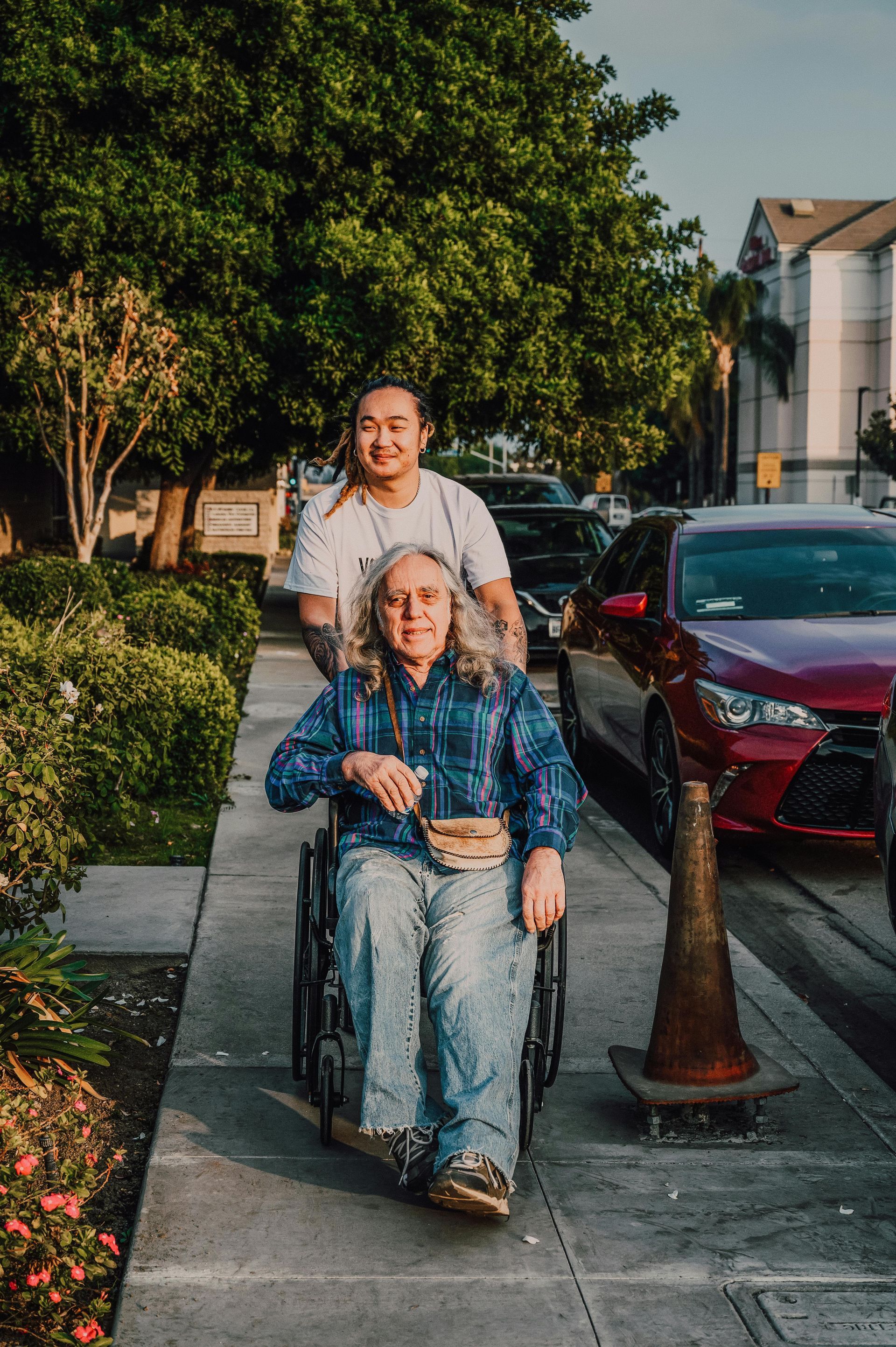Self-Care for New Caregivers
How to Sustain Well-Being While Caring for Others

Caring for a loved one can be both rewarding and exhausting. Between new routines, emotional strain, and constant responsibility, self-care often falls to the bottom of the list. Yet, maintaining your own well-being is not a luxury — it’s a prerequisite for sustainable caregiving.
---
TL;DR
● Caregivers who prioritize rest, emotional regulation, and community support sustain higher long-term resilience.
● Small, structured actions (micro-breaks, boundary setting, peer connection) compound into meaningful well-being gains.
● Self-care is not indulgence; it’s a system for preserving your ability to give care effectively.
---
Learning from Balance: The Skill of Sustained Care
Modern caregiving requires adaptability — not just compassion. It mirrors the challenge of managing distributed systems: many inputs, limited energy, and the need for clear priorities. Like maintaining a complex network, sustainable caregiving depends on monitoring load, managing flow, and preventing burnout loops.
Interestingly, some caregivers improve their cognitive management skills by exploring structured problem-solving disciplines, such as earning computer science degrees online. These fields emphasize systems thinking — an approach that helps caregivers model stress, anticipate overload, and design recovery loops in their daily lives.
---
Core Principles of Self-Care for New Caregivers
1. Preserve your baseline health: Prioritize hydration, nutrition, and regular medical checkups.
2. Use micro-rest cycles: Short, frequent recovery moments sustain focus and empathy.
3. Design boundaries early: Communicate clearly about visiting hours, expectations, and your own rest time.
4. Diversify emotional input: Engage with people outside your caregiving context to reduce echo-stress.
5. Document progress: Keep a “care log” — not just for the patient’s needs, but for your own reflections and adjustments. Further reading: explore time-blocking systems.
---
Daily Caregiver Self-Check
Domain Key Question Practical Example
Physical Have I eaten and hydrated adequately today? Prepare pre-portioned meals or shakes for quick use.
Emotional Do I feel emotionally depleted? Take a 10-minute walk, or text a friend unrelated to caregiving.
Cognitive Is my attention fragmented? Use focus timers like Pomofocus.
Social Have I interacted with supportive peers? Join online caregiver groups (e.g., AARP Caregiver Support).
Spiritual Have I reconnected with meaning or purpose today? Write one gratitude note or reflect for 2 minutes.
---.
How-To: Build a Micro-Recovery Routine
Step 1: Identify energy drains. List moments that exhaust you — emotional conversations, night alarms, or complex paperwork.
Step 2: Assign counter-balances. For every drain, pair a brief restorative act: deep breathing, stretching, or stepping outside.
Step 3: Automate reminders. Use a simple app like Google Keep or Notion to cue breaks at consistent intervals.
Step 4: Track feedback. Note which actions replenish you most — then scale those habits.
Step 5: Protect boundaries. Share your break schedule with family or co-caregivers to normalize respect for your rest time.
---
Caregiver’s Mini-Toolkit Checklist
● Refillable water bottle
● Pre-planned quick meals
● Backup caregiver contact list
● 24-hour emergency plan
● 10-minute relaxation playlist
● Journal or notes app for reflections
● Emotional support contact (friend, counselor, or helpline)
● Weekly “you-only” time block (non-negotiable)
---
FAQ
Q1: Isn’t self-care selfish when someone depends on me? No — it’s maintenance. You cannot pour from an empty vessel.
Q2: How can I find respite care? Check local agencies via Eldercare Locator or local nonprofits; many offer short-term relief programs.
Q3: What if I feel guilty taking breaks? Reframe breaks as part of caregiving quality assurance — ensuring you remain emotionally available.
Q4: Can technology really help? Yes. Apps for scheduling, medication reminders, and journaling can reduce cognitive load.
Q5: What’s one daily action with the biggest impact? Sleep consistency — even 30 extra minutes stabilizes mood, cognition, and empathy.
---
Glossary
● Care Log: A brief daily record combining patient care notes and self-care reflections.
● Micro-Rest: Intentional, short recovery sessions to prevent fatigue buildup.
● Boundaries: Clear agreements protecting personal energy, time, and mental bandwidth.
● Respite Care: Temporary professional assistance that allows primary caregivers to rest.
● System Thinking: The practice of managing complex interdependencies through structured observation and iteration.
---
Featured Resource: The Productivity Planner
If you’re looking for a well-designed, research-backed planner that balances structure and self-reflection, consider the Productivity Planner by Intelligent Change. Its 90-day undated layout includes space for time-blocking, priority setting, habit tracking, mood check-ins, and end-of-day reflections — ideal for aligning caregiving demands with your own energy cycles. Using this planner in parallel with digital tools like Trello or Evernote, or with supportive caregiver groups, can help you stay grounded, monitor stress trends, and hold yourself accountable over time.
---
Sustainable caregiving is a balance between compassion and capacity. Treat your well-being as infrastructure: maintained, measured, and respected. By combining structured rest, supportive tools, and intentional reflection, caregivers not only endure — they evolve into more resilient, adaptive, and fulfilled humans.
Discover how the Charlie E & Minnie P Hendrix Foundation is transforming lives by raising awareness and providing support for those living with chronic illnesses and disabilities. Visit their website to learn more and get involved!
***On behalf of the Charlie E & Minnie P Hendrix Foundation for Chronic Illness, I want to extend our heartfelt thanks to Justin Bennett for your thoughtful and informative article contribution. Your insight and expertise have added tremendous value to our mission of educating and empowering individuals living with chronic illnesses.***
